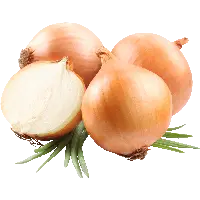What could this genuinely be used for? Wouldn’t you have to use it on stuff that will be discarded before it starts breaking up a few months in?
Not a scientist so couldn’t quite tell from the article if this would work for its use case; but all of the prepared / cooked food I see at my grocery store is packed in plastic containers. They all have shelf life of that day / maybe a couple of days (this is like a buffet + packed / prepared meals, not sure what exactly to describe it as). I always thought it would be great if that could be less wasteful, it’d definitely make me feel more likely to buy it instead of all being in single use plastic containers.
I guess a month life cycle would be enough in that case. I mean you have to include transport and storage time before it gets to the shelves with fresh food in it
Definitely was finding it hard to describe what I mean, my store has a bakery/butchery in it and I think they prepare things in-house, like bake bread/muffins and then throw them in plastic bags, make batches of mac and cheese and throw it in plastic tubs, etc. It’s possible they ship some stuff in and that wouldn’t work, but I just meant for things that were literally like oven to shelves stuffed into plastic bags, maybe it’d be nice if it could be used there.
I think you’re missing the compost part. Wood will break down in a compost, yet you can build houses from it. Indoor furniture made from wood will happily serve you for decades. Same with this biodegradable plastic: It’ll have a shelf life of decades or even centuries. When shredded and composted it will break down. This material is likely not a good candidate for the wheel housing on your car, but there’s no reason not to use it, for example, for a car’s interior.
single use plastics? there are tons of plastic materials that are embedded in things we only use once and then throw away. we don’t need the plastic on string cheese to last for longer than a few months. or plastic bottles. or bubble wrap. or the plastic coating on cans. from what the article says, its not water soluble, so it needs to be actively colonized by bacteria to break down. if we built it into reusable plastic objects, they’d just need to stay clean and dry. most natural clothing fiber is biodegradable, but that doesn’t mean it’s gonna fall apart, it just means if you leave it outside something might come and eat it. the idea all the things we discard are made from things other living creatures can’t eat is a huge bummer. it would be fucking cool if we could compost all our garbage again!
I cannot possibly be the only person who misses the soap with the plastic bits in it. If they could do that without the environmental damage (I’m looking at you, Great Lakes ecosystem), I’d be into it
You want soap with plastic bits in it?
I’ll believe it when it’s been in the market (and disposed of) for ~80 years and we have studies on how well that worked out for us.
Excellent, now roll it out ASAP.
Yeah but will it though? They said PLA is compostable and that turned out to be a bunch of bullshit.
deleted by creator
That’s… what they’re doing. The headline is a bit inaccurate. When the plant-based polymer breaks down, it breaks down just like any other organic material, instead of plastic that just breaks down into tiny plastic.









